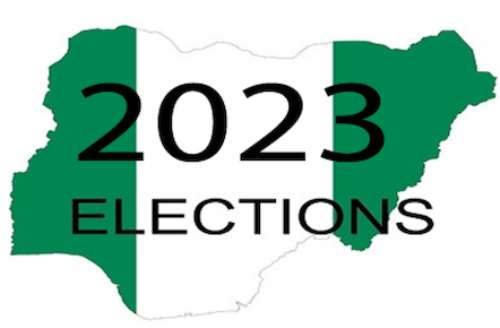On Saturday, Nigerians will vote to choose a replacement for President Major General Muhammadu Buhari (ret. ), who is stepping down after eight years in office.
Moreover, candidates for the House of Representatives and Senate seats in the federal parliament will be listed on the ballot.
The majority of the nation’s 36 states will hold governorship elections on March 11 in addition to voting for state legislators in each state.
Election Day in 11 digits is as follows:
– 18 applicants
Analysts predict that three contenders as Frontliners out of the 18 contestants:
– Atiku Abubakar, 76, of the Peoples Democratic Party, the main opposition party. A former vice president, Abubakar is a perennial hopeful for the top job — he ran in 2007 and 2009, lost his party’s primaries in 1993, 2011 and 2015.
2023 Elections: INEC Reveals 93.47m Voters To Participate
– Bola Tinubu, 70, of the ruling All Progressives Congress. A former legislator and two-time governor of Lagos State, Tinubu is nicknamed “City Boy” and “the Godfather of Lagos” by supporters for his clout in Nigeria’s economic capital.
– Peter Obi, 61, of the Labour Party. The two-time governor of Anambra State in southeast Nigeria enjoys wide popularity among young voters. His supporters — “OBIdients” — are very popular on social media, declaring he is the only candidate who can turn the economy around.
– 93.5 million –
That’s the number of eligible voters, according to the Independent National Electoral Commission, which is in charge of the election. Lagos State, in the southwest, has the highest number, with 7.06 million registered voters. Ekiti State, also in the southwest, has the lowest, with 987,647.
– 1,265,227 –
INEC says it will need 707,384 presiding and assistant presiding officers, 17,685 supervisory presiding officers, 9,620 returning officers and 530,538 security officials to oversee the elections.
– 52.5 and 47.5 –
Of the total of eligible voters, 49,054,162 (52.5 per cent) are male. Female voters constitute 47.5 per cent, with 44,414,846.
Forget Atiku, Peter Obi, Deliver 95% Votes For Me – Tinubu To Ekiti Voters
– 176,606 –
Elections will be held in 176,606 polling units located in 8,809 registration areas or electoral wards in 774 local government areas nationwide.
– 240 –
Elections will not be held in 240 polling stations, mainly because of insecurity or because communities there have been displaced by violence.
– 6 –
Polling stations will be open for six hours, from 8:30 am to 2:30 pm. Voters who are still in the queue as of 2:30 pm will be allowed to go through and cast their ballots.
– 200,000 –
Over 200,000 so-called Bimodal Voter Accreditation Systems are being deployed to verify voter identity through fingerprint or facial recognition to help combat fraud, corruption, and tallying errors.
– 14 –
Under the 2022 Electoral Act, the returning officer for the presidential election has to officially confirm the result, in the form of a sealed certificate, within 14 days of the ballot.
2023 Elections: How Peter Obi, Atiku, Tinubu, Kwankwaso Stand In Kaduna State
– 2/3 –
To be declared winner of the presidential election, a candidate must have obtained the highest number of votes and must also poll at least 25 percent of the ballots in at least two-third of the 36 states and Abuja.
– 21 –
If none of the candidates meet the requirements, there will be a run-off between the two top candidates within 21 days, although this has never happened in Nigerian history.
AFP
Follow us on Facebook
Post Disclaimer
The opinions, beliefs and viewpoints expressed by the author and forum participants on this website do not necessarily reflect the opinions, beliefs and viewpoints of Anaedo Online or official policies of the Anaedo Online.

